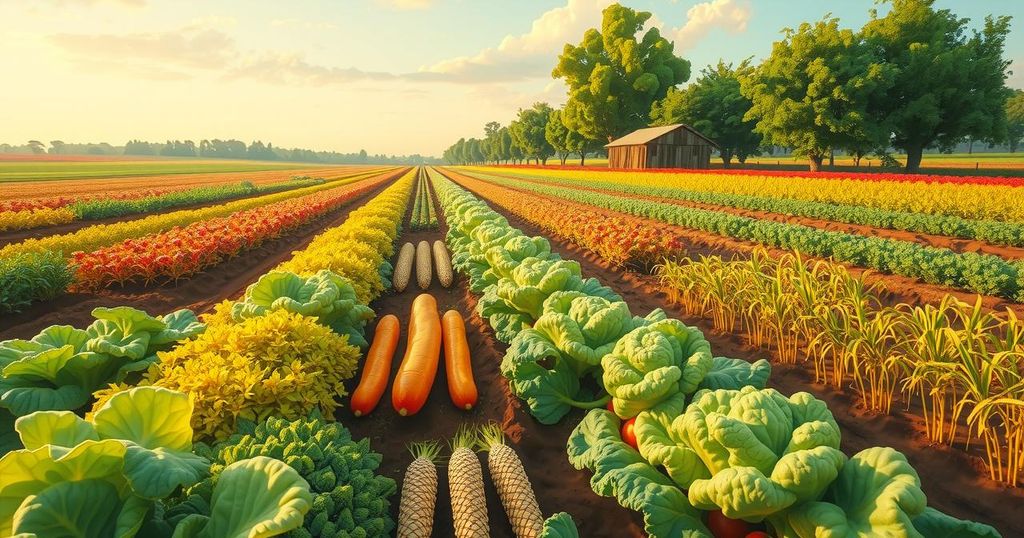Integrating Food Systems into COP30: A Critical Opportunity for Climate Action

Brazil is hosting COP30, emphasizing the urgent need to include food systems in climate negotiations. With agriculture being a leading cause of deforestation and emissions, ignoring its role jeopardizes crucial environmental initiatives. However, sustainable agricultural practices can mitigate climate impacts and enhance food security. Brazil’s leadership in addressing these issues is vital for the success of COP30 in achieving transformative global solutions.
The upcoming COP30 conference, hosted in Brazil, presents a unique opportunity to integrate food systems into the climate agenda. As the nation is home to the Amazon rainforest, discussions around the impact of food systems on deforestation and climate change are vital. Despite food systems being a key driver of environmental degradation and emissions, they have been overlooked in the preliminary discussions for COP30. Ignoring this aspect could hinder vital conservation efforts and Brazil’s leadership role in climate action.
The current global food system is dysfunctional, posing a significant threat to food security amidst rising climate challenges. It benefits large food corporations while burdening family farmers and consumers with increasing costs. This broken framework has led to detrimental impacts on food production and access, particularly in vulnerable regions. Moreover, agriculture contributes around 30% of anthropogenic emissions and is a major factor in deforestation.
Despite its challenges, the agricultural sector also presents considerable potential for climate solutions. Implementing sustainable practices like agroforestry, crop diversification, and sustainable fertilizer use could significantly reduce emissions, with estimates suggesting the possibility of mitigating 10-12 billion tonnes of CO2 annually. Brazil has initiated several programs, including the Global Alliance Against Hunger and Poverty and the National Plan for Agroecology, to address these pressing issues while supporting family farmers.
The COP30 summit must direct attention to food systems in order to effectively combat deforestation and climate change. Andrea do Lago has emphasized the necessity for actionable measures during the conference, advocating for nations to establish concrete strategies to transition to sustainable agriculture. This includes financial support for countries to address specific causes of deforestation and integrating food system transformation in their national action plans.
COP30 is a critical juncture to address the climate finance gap, particularly for developing nations. Brazil advocates for the establishment of a framework to mobilize $1.3 trillion annually by 2035 for sustainable agricultural practices and ecosystem protection. Investing in a global sustainable food system is crucial to enhancing productivity and safeguarding environmental integrity, potentially yielding economic benefits of $5-10 trillion each year.
In conclusion, the COP30 summit in Brazil must prioritize food systems in its agenda to combat climate change effectively. Addressing the dysfunctional food system is essential not only for achieving climate goals but also for ensuring food security. With Brazil’s leadership and commitment to sustainable agriculture, the conference has the potential to initiate significant transformations in global food practices, improving both environmental and economic outcomes.
Original Source: www.climatechangenews.com





